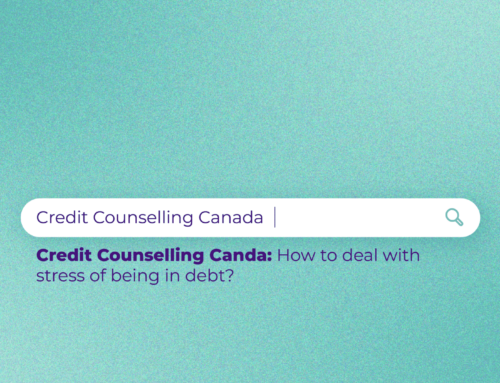It’s a stressful time for us all, and financial concerns are ever–present, especially given the uncertainties of today’s economy. Recently, Loans Canada conducted a survey that has shown us that 82 percent of respondents have experienced a loss of income due to COVID-19. So, it’s clear that many Canadians are experiencing a financial strain in these unprecedented times. But usually, when financial trouble begins, financial stress follows, which can take a huge toll on our mental health.
According to a Nanos Research poll for the Mental Health Commission of Canada, it finds 44 percent of Canadians have felt stressed regularly or all the time because of the COVID-19 outbreak. So, combining generalized stress due to the outbreak, with a loss of income, is a recipe for huge financial stress. But what can be done to help?
Whereas we can’t change the uncertainty around the current economic troubles happening around the world, we can provide some guidance about how you can reduce the stress surrounding your own personal finance. Check out nine points to consider when it comes to financial stress and how you can try to ease that worry and keep positive.
Tip 1: Make a plan
So, we’ve talked about budgeting and tracking your spending many times in the past, and we’re firm believers that these are ideal ways to avoid stress. Whether you decide to take note of your income and all your debts and bills combined to evaluate what needs to be paid adequately, a plan is essential. When we feel stressed about money, it’s common to distance yourself from a budget due to stress, but it’s essential to stick to it. You’ll thank yourself later for staying on track.
Tip 2: Identity what needs the most attention
In order to try to combat the financial stress you’re under, why not write down the three things you find the most challenging when it comes to money. Whether it’s paying your credit card debt, saving for retirement or paying your utility bills. It’s important to try to recognize where your financial anxiety is coming from in order to ease it.
Tip 3: Try to stay positive
We all know that it’s easier said than done, but staying positive will undoubtedly help your mood. Instead of dwelling on the idea that you’re deep in debt or struggling to improve your credit score, why not focus on how much ease you will feel once you reach that magic prime credit score or when your debt is down to the double digits? This will help keep you motivated.
Tip 4: Be realistic
Just like a diet or new workout routine can lead to burnout, you don’t want to set overly ambitious financial goals that you may abandon in a few weeks or months. It’s important to be realistic. Make sure you base your goals on your plan to ensure that they are financially achievable.
Tip 5: Utilize your income
It can be very demotivating at times if you feel you don’t have enough available money to put towards your financial goals. It’s important to focus on making the most of your income and tracking your spending so each penny is well spent and in line with your aspirations.
Tip 6: Small steps are key
Slow and steady wins the race. It’s important not to rush to meet your goals. If we aren’t realistic, trying to save too much money or not enough, we will end up breaking before we’ve even begun. It’s not easy to budget and saves, so don’t be too hard on yourself. At the beginning, you may slip up – but that’s okay because we’re all human. If that happens, remind yourself of how much you‘ll gain by reaching your goals. Examine your plan and budget again and make sure you aren’t overly ambitious, as small steps are key.
Tip 7: Celebrate small wins
Following your progress and celebrating the small wins can help alleviate stress. This will make you feel more optimistic and confident about your future. Change is hard, and striving to meet your financial goals is not easy. But once you see that your effort is paying off, you will feel a weight off your shoulders, and your mental and emotional stress lightens.
Tip 8: Ask for support
This is an important one. Don’t be afraid to ask for help. Whether it’s your family, friends or local financial advisors, no one wants to see you struggling on your own. And the odds are that someone very close to you has been through financial stress at least at one stage of their lives. By asking for support, you may also find yourself receiving some very valuable advice. A problem shared is a problem halved.
Tip 9: Remember what’s important
Don’t worry. It can all get overwhelming, but you need to remember that regardless of what happens in your financial life, your friends and family are still there for you. Having bad debt doesn’t make you a bad person.
About Marble Financial Inc. (CSE: MRBL; OTCQB: MRBLF). We are a group of forward-thinking financial technology experts that fully understand the benefits and drawbacks of credit in Canada. Marble helps Canadians improve their credit to gain access to prime lending. Through our industry-leading proprietary technology solutions: Fast- Track, Score-Up, and Credit-Meds. Since 2016, Marble is proud to have empowered thousands of Canadians to a positive financial future. We continue to establish ourselves as leaders in financial wellness.






